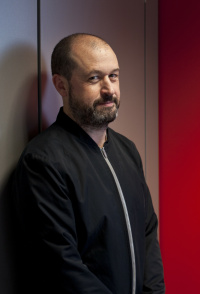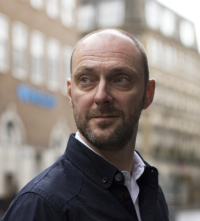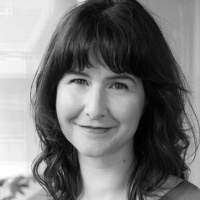Why is design and creativity important to your organisation?

‘Because the organising principle of GDS is the user, and the user deserves services designed for the user, not the Government. Design and creativity are central to recasting public services, and indeed the civil service, if we are to create public services fit for a digital era.’
Mike Bracken, executive director, Government Digital Service

‘To design is to challenge the status quo. To dream about what could be, or what should be. It’s about solving problems that change the way humans think,
act and move. At its core, Nike is an Innovation company, with a mission to better serve the athlete, and this drives a very focused design ethos. The company started over 40 years ago with two people who thought to change the way running shoes performed, and without design, creativity and, most importantly, taking risks, Nike would
be a fundamentally different company today. These core values continue at the very heart of the company today. It’s hard
to change the future unless you value design, the design process and the obsessive art of making.’
Andy Walker, global creative director brand design, Nike

‘Without design there would be chaos. Great design is structured, intellectually thought through, challenged over and over, and only those trained to do so can do that. I really don’t believe that everyone is a designer, just as not everyone is a great writer or painter, poet or singer. Creativity, on the other hand, although sharing similar patterns with the design process, can be owned by anyone, and without the freedom to express creativity, human nature would wilt, half the brain would atrophy (I can never remember if it is left or right). It is the formation of ideas, whereas design is transforming ideas into 2D or 3D. All areas of business must have creativity, it is what makes the Museum of London sing, visually and intellectually, and with intelligent control that makes our visitors feel excited and empowered, refreshed and not overwhelmed. Not everyone can produce that magic, but everyone can have ideas.’
Leigh Cain, head of design, Museum of London

‘A demanding brief can inspire the best creativity. And, at the British Heart Foundation, our brief couldn’t be more challenging – finding a cure for heart disease and helping the public live a heart healthy life. But that challenge fosters a culture of determination, problem solving and lateral thinking. When our scientists hunt for a way
to repair a damaged heart, they need to be as creative as our designers – creating high-impact campaigns to wake up the UK public to heart health. I have a theory that if I were to splice open a scientist’s brain and a designer’s brain, I’d see the same sparks of activity, the same curiosity and the same ambition. Design and creativity isn’t just important – it is core to everything we do.’
Louise Kyme, design manager, British Heart Foundation

‘We could not do what we do without good designers. From clever architects, who make sense of the lost and abandoned places where we build, to the artists and environmental designers, who bring the places to life while we build. Then when we need to communicate through our sales process, we are umbilically connected to our creatives. They inspire everything we do. Special namechecks go to James Greenhow at Realise Creative and Morag Myerscough, who have both been instrumental in shaping our success.’
Martyn Evans, creative director Cathedral Group

‘The issues we are trying to solve sound technical, but are actually intensely human ones – how will an increasingly integrated physical and digital world work to the advantages of customers and citizens and finding new services and customer experiences through the interconnections possible in the Internet of Things. The next big opportunities are built on technical innovation – but will only be usable and successful through creative application and humane and beautiful design. These are skills we have in abundance in the UK and they are vital to our future prosperity.’
Clive Grinyer, customer experience director, Barclays

‘This question is dear to my heart – the reason I joined the BBC is because its goal is to be the most creative organisation in the world. I thought: I want to be a part of that! Why is creativity important to us? Because the people who own the BBC (people like, well, you) expect us to offer work that exemplifies creativity – work that engages, delights, and breaks new ground. And design is important to us because it’s what sparks and captures creativity, and builds it into something wonderfully real.’
Julia Whitney, head of user experience & design group, BBC
-
Post a comment




